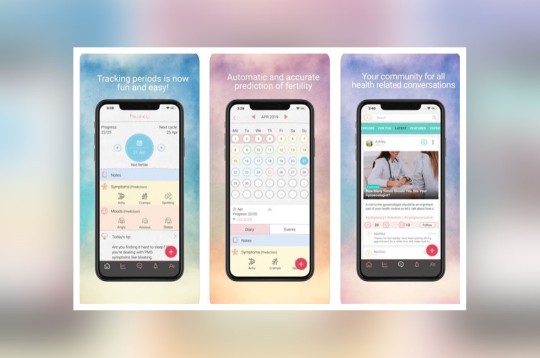Don't wanna be here? Send us removal request.
Text
Hey Facebook—Am I Pregnant?
By Amanda Hassett

Everyday consumers are inundated with promises from emerging technologies to help make our lives easier—Amazon can deliver almost anything, Uber has revolutionized local travel, and Open Table has taken the headache out of finding dinner reservations on a busy Saturday night. Most consumers embrace the convenience of these technologies without much thought to the consequences of the information they are sharing and who has access to it. We trust firms to handle our private information with the utmost care and respect for privacy…but what happens when that is not the case? Privacy International, a UK advocacy group, shared a report this week which detailed period and fertility tracking apps, most notably Maya and MIA, have been sharing a wide range of highly personal and sensitive information with, of course, Facebook…
Millions of women around the world have embraced these apps to help track their menstrual cycles and monthly fertility windows. For the app to provide the most accurate results for its user, it relies on women to input a wide variety of personal data including, daily mood, sexual activity, contraception usage, and symptoms such as tiredness and even acne breakouts. Thanks to Facebook’s Software Development Kits (SDK), a product which allows app developers to track analytics and monetize their apps through Facebook’s advertising networks, the information inputted by its female customers was shared directly with the social media juggernaut for strategically ad targeting. The major criticism lies in the fact these apps were not forthcoming with their use of the SDK and certain customer information was shared with Facebook before users even had an opportunity to review and agree to the apps “terms and conditions.”
Once again, the world’s largest social media platform with 1.2 billion daily users, finds itself in the middle of a user privacy debacle. After last year’s Cambridge Analytics scandal along with other accounts of misinformation, allowance of fake accounts, and consumer breaches of trust, Facebook has attempted to take steps in better protecting its users’ data. In a statement responding to the Privacy International report Facebook offered:
Its terms of service prohibit app developers from sharing health or sensitive data, and that it has been in contact with Maya and MIA to notify them of a possible violation of those terms. We have systems in place to detect and delete certain types of data such as SSN, passwords, and other types of personal data. We have begun looking at ways to improve our system and products to detect and filter out more potentially sensitive data…
With apps not being held to the same standards as the health care industry in terms of patient/user privacy, serious concerns have been raised over who ultimately has access to this type of data and the oversight of properly securing it.
It’s not just advertisers who’d love to get their hands on this type of medical data, but employers and insurance companies have aggressively pushed to collect more and more data on their employees under the guise of corporate wellness. Imagine if a potential employer had access to medical information for job candidate which confirmed she was actively trying to get pregnant, how many firms would not hire her to avoid the complexities of having an employee on maternity leave within her first year at the firm…? Access to this type of data would allow insurance companies to discriminate against certain women by charging higher premiums for those most likely to conceive to offset the costs associated with pregnancy, delivery, and post-partum care.
Customers have placed trust in apps like Maya and MIA with their personal health information and fully expected it to be protected and secured. In today’s data-driven society, firms go through great length to collect all available data on their customers to gain awareness and achieve a competitive advantage. Is it even reasonable for consumers to have expectations of privacy or do companies need to step up their data discretion game and start showing more respect towards their customers?
Ladies, if data sharing like this have you seriously concerned there’s nothing wrong with an old school calendar stored in your nightstand to help you keep track of your personal business…just sayin’.

Sources:
https://www.bbc.com/news/technology-49647239
https://www.buzzfeednews.com/article/meghara/period-tracker-apps-facebook-maya-mia-fem?utm_source=dynamic&utm_campaign=bffbbuzzfeed&ref=bffbbuzzfeed
https://www.washingtonpost.com/technology/2019/09/10/these-apps-may-have-told-facebook-about-last-time-you-had-sex/?arc404=true&noredirect=on
2 notes
·
View notes